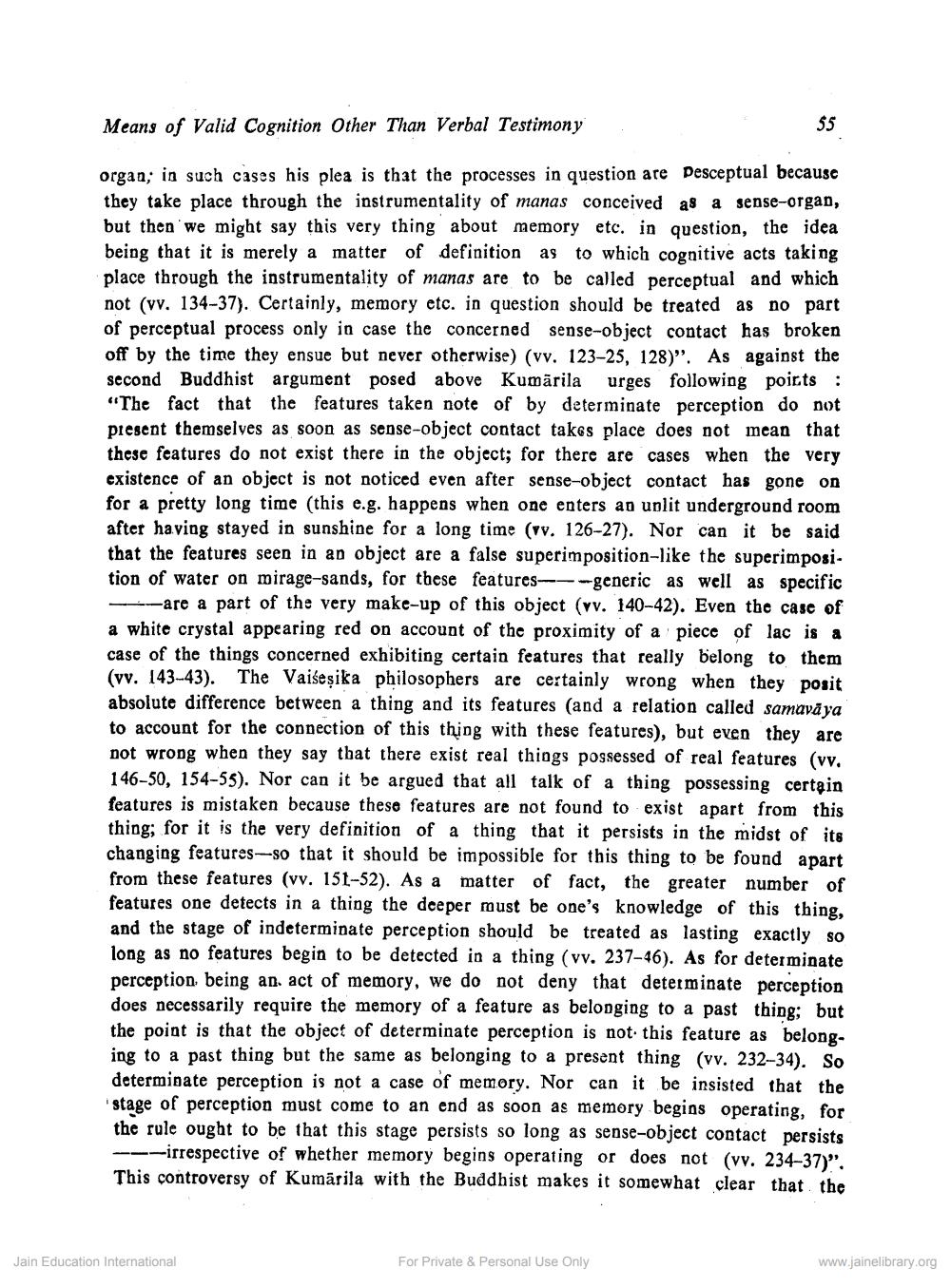________________
Means of Valid Cognition Other Than Verbal Testimony
organ; in such cases his plea is that the processes in question are Pesceptual because they take place through the instrumentality of manas conceived as a sense-organ, but then we might say this very thing about memory etc. in question, the idea being that it is merely a matter of definition as to which cognitive acts taking place through the instrumentality of manas are to be called perceptual and which not (vv. 134-37). Certainly, memory etc. in question should be treated as no part of perceptual process only in case the concerned sense-object contact has broken off by the time they ensue but never otherwise) (vv. 123-25, 128)". As against the second Buddhist argument posed above Kumārila urges following points: "The fact that the features taken note of by determinate perception do not present themselves as soon as sense-object contact takes place does not mean that these features do not exist there in the object; for there are cases when the very existence of an object is not noticed even after sense-object contact has gone on for a pretty long time (this e.g. happens when one enters an unlit underground room after having stayed in sunshine for a long time (vv. 126-27). Nor can it be said. that the features seen in an object are a false superimposition-like the superimposition of water on mirage-sands, for these features--generic as well as specific
-are a part of the very make-up of this object (vv. 140-42). Even the case of a white crystal appearing red on account of the proximity of a piece of lac is a case of the things concerned exhibiting certain features that really belong to them. (vv. 143-43). The Vaiseṣika philosophers are certainly wrong when they posit absolute difference between a thing and its features (and a relation called samavāya to account for the connection of this thing with these features), but even they are not wrong when they say that there exist real things possessed of real features (vv. 146-50, 154-55). Nor can it be argued that all talk of a thing possessing certain features is mistaken because these features are not found to exist apart from this thing; for it is the very definition of a thing that it persists in the midst of its changing features-so that it should be impossible for this thing to be found apart from these features (vv. 151-52). As a matter of fact, the greater number of features one detects in a thing the deeper must be one's knowledge of this thing. and the stage of indeterminate perception should be treated as lasting exactly so long as no features begin to be detected in a thing (vv. 237-46). As for determinate perception. being an act of memory, we do not deny that determinate perception does necessarily require the memory of a feature as belonging to a past thing; but the point is that the object of determinate perception is not this feature as belonging to a past thing but the same as belonging to a present thing (vv. 232-34). So determinate perception is not a case of memory. Nor can it be insisted that the stage of perception must come to an end as soon as memory begins operating, for the rule ought to be that this stage persists so long as sense-object contact persists irrespective of whether memory begins operating or does not (vv. 234-37)". This controversy of Kumarila with the Buddhist makes it somewhat clear that the
Jain Education International
For Private & Personal Use Only
55
www.jainelibrary.org




